AAAYA NorCal – Yellow Face Play Sep 2009 in Mountain View – Recap
- Jul 29, 2009
- 6 min read
Yellow Face Play 9/10/09
Two Generations Reflecting on David Henry Hwang’s Yellow Face
By Julie Wong, “86 and her daughter, Emilie Robert Wong
About 40 Yale alumni and friends gathered together to attend the regional premiere of David Henry Hwang’s fascinating play “Yellow Face.” The event was co-sponsored by the Yale Club of Silicon Valley (YCSV) and the Asian American Association of Yale Alumni (AAAYA) at the Mountain View Center for Performing Arts (click on thumbnails in photo gallery below to open slideshow view). I attended with my fourteen year old daughter and eleven year old son and was having flashbacks to my father taking me to see David Henry Hwang’s first play,written as an undergrad at Stanford, FOB, at the East/West Players in Los Angeles back when I was a teenager.

In case you missed Yellow Face, here is a Generation Next analysis by my daughter, Emilie, followed by my notes on the exclusive post-play Q&A with Yale alumni: Playwright, David Henry Hwang (MFA,’83), Actors, Francis Jue (’86) and Pun Bandhu (MFA, ’01), plus Director Robert Kelley.
To read the reviews by Emilie and Julie and to see the photo gallery, select the More… link below.
Unmasking David Henry Hwang’s Yellow Face
By Emilie Robert Wong
What happens when David Henry Hwang/DHH, the only Asian to win a Tony Award for Best Play, writes a play about his writing a play to protest the casting of Caucasian actors in yellow face playing major Asian roles in another Tony Award-winning play and then mistakenly casts a white actor in the leading Asian role? Confused? You’re meant to be. Yellow Face is a fast-paced “mockumentary” written by and about playwright David Henry Hwang and his struggles to “save face” while unmasking the true meaning of racial identity in a supposedly color-blind world.
The practice of yellow face is similar to that of black face. Non-Asian actors put on yellow makeup and artificially change their eyes, sometimes adding buckteeth, thick glasses, and speaking English either poorly or with a very strong accent, to appear more stereotypically Asian. However, while the practice of black face has largely been abandoned and denigrated as racist, the practice of yellow face is as contemporary as the blockbuster musical, Miss Saigon. In Miss Saigon, Jonathan Pryce played the role of the Eurasian Engineer and Keith Burns played the heroine’s Vietnamese fiancé, Thuy. Both actors are Caucasians and used heavy yellowish-brown make-up and exaggerated prosthetics to make their eyes look more “Oriental.” The play, Yellow Face, originated from this incident. Was the practice of yellow face in Miss Saigon an egregious example of racism or was it simply artistic license and a triumph of color-blind casting? Don’t look for any easy answers from David Henry Hwang.
Yellow Face provides a headache-inducing array of multiple perspectives and eccentric characters, who refuse to be characterized. In some ways, the father/HYH (Francis Jue, reprising the role for which he won an Obie in the original NY cast) is so quintessentially Chinese that I recognize many of the attitudes and behavioral patterns of my own Chinese American relatives in him. On the other hand, HYH thinks he’s so American that his theme song is Frank Sinatra’s “I Did It My Way”! Marcus G./Gee, the Caucasian actor DHH mistakenly casts as the Chinese lead in his play-within-a-play, is allegedly an Asian by way of being a Siberian Russian Jew (didn’t you know that the Chinese are actually the lost tribe of Israel?). Marcus claims to have done more for the “community” than DHH, himself. The character of DHH in the play proclaims, “…take words like ‘Asian’ and ‘American,’ like ‘race’ and ‘nation’ and mess them up so bad no one has any idea what they even mean anymore.”
Fact becomes stranger than fiction as Yellow Face also takes aim at how the modern-day media “create” stories. Some of the most striking lines in the play were not written by David Henry Hwang, but were “found” in headlines and other quotations from supposedly objective media sources like the Wall Street Journal, New York Times, and the Boston Globe. Was Wen Ho Lee, the Los Alamos scientist imprisoned for 9 months for treason and then acquitted, really an inscrutable spy for a foreign power or just a victim of a media-hyped, racist, smear campaign? The actual transcript of his interrogation is heartbreaking, but the scene I found most interesting in the play was the interview that never takes place between DHH and a reporter (whose name is withheld on the advice of counsel). The reporter decides not to use the tape recording that he has made of the interview with DHH because “the facts” don’t fit his “story”! DHH in turn threatens to use the “story” that the reporter has fabricated as the basis for a play exposing the reporter as just as much a writer of fiction as DHH!
The message in Yellow Face is that no one has all the answers; what is important is to continue asking questions. It is especially important to continue questioning the concepts of race, politics, and cultural identity, pre-fabricated by the media and sometimes held in our own hearts. After Marcus G./Gee fulfills his role in making DHH bado cams question many of his own deeply held beliefs about these issues, he disappears. His task is accomplished. Perhaps Marcus, the only truly fictional character in a play ripped from the headlines and abounding in characters based on real people, is a metaphor for what fiction should do: make us a reflect on reality.
A State of Race: Yale at the “Yellow Face” Silicon Valley Premiere
By Julie Wong, “86
After the play, three Yale alumni: Francis Jue (’86) who won an Obie for his portrayal of David Henry Hwang’s father in the play, Pun Bandhu (MFA, ’01), who played David Henry Hwang, David Henry Hwang (MFA, ’83), the playwright, himself, plus TheatreWorks Founder and Artistic Director, Robert Kelley, led a multi-leveled discussion of race, culture, politics, theater, and the media. Even TheatreWorks Managing Director, Phil Santora (Yale MFA ’92) made an appearance! The performance was preceded by a festive meal at the New Mongolian BBQ. The whole event reminded me of what I loved about Yale, catching up with old friends and making new ones, sharing challenging and thought-provoking experiences, and then engaging in lively discussions and analysis as far into the night as our current post-student schedules would permit. Topics in brief:
DHH on: What is the role of culture and race in a post-Obama, post-racial world and the future of Asian American studies?
PB questioning: Are we in a “post-racial” or a “post-racist” world?
FJ pondering: Why my HS asked me to speak on overcoming racism (“all by myself!”) and do I really know what the hell it means to be Chinese American?
DHH chiming in again on the “authenticity of race” and how questions of racial or cultural authenticity are complicated in a world which is increasingly multi-racial and multi-cultural
FJ attempting to explain why out of the 20 roles he encompassed during the show, playing Korean-American comedian, Margaret Cho, was the most terrifying and what it really means to be a “diva” (Where’s my fruit basket!!??!?)
DHH on: How the objective media “creates” narrative meaning in a post-modern world and the blurring of narrative fact and memoirs-based fiction (e.g. Oprah outting Little Tree live!)
RK: On the irony of media which claims to be “objective” but is consistently editorial
FJ: SF-born “native son,” commenting on the differences between the original NY production and it’s tense “knives around the corner” and smugly PC sensibility vs. playing in the Bay Area which is “hungry for the political (aspect)” and “like playing to family” (We love you, Francis!)
Plus examining:
The myth of the Chinese as the Lost Tribe of Israel and how Russian Siberian Jews are the new Asians
The state of the American Dream and who will be the next Asian American Annie or the next Caucasian Mulan
One last tidbit from Artistic Director, Robert Kelley on the Silicon Valley staging of the play in the “ceci n’est pas une pipe” art imitating life imitating art imitating life category: the voice over that interrupts the play purporting to be TheatreWorks’ attorney advising that the name of the reporter be withheld on the advice of counsel is actually the voice of the actor playing DHH’s manager/attorney in the show!
David expressed the hope that Yellow Face would continue to engender discussion about race, culture, politics, and the media beyond the confines of the theater — so I hope that these topics become conversation starters at your home; I know that they were at ours!
Hoping to see you at more AAAYA events – Anyone interested in attending the Shen Yun Performing Arts Chinese New Year extravanganza (see ShenYunPerformingArts.org) at the SF War Memorial Opera House at the beginning of January – let me know! (insert email address) Tickets are pricey, but if there is enough interest, we can get a group rate. This is going to be a great way to leap into the Year of the Tiger!
Julie Wong ’86, AAAYA NorCal Yellow Face Play Event Chair
Photo Gallery

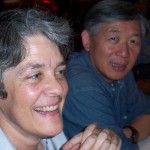

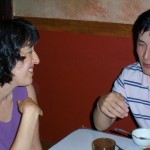
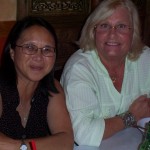
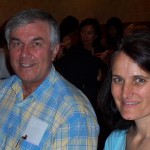

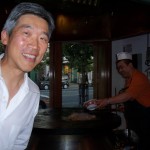
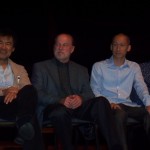
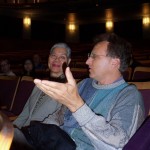

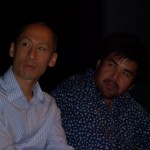
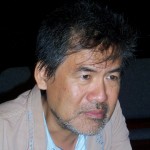
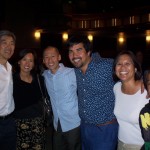
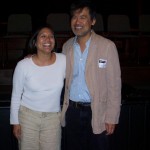
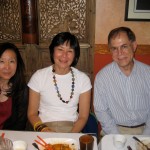
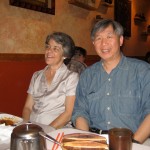
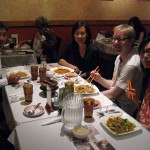
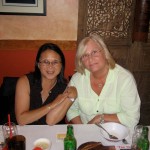
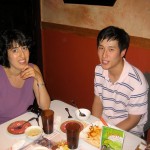
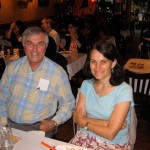
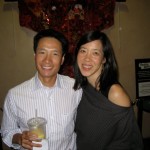
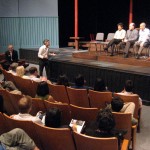
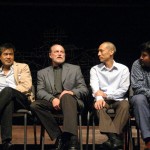
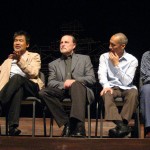
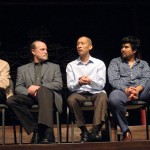




Comments